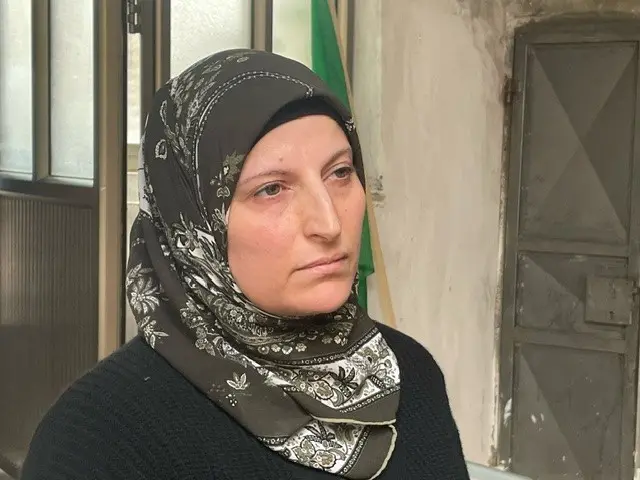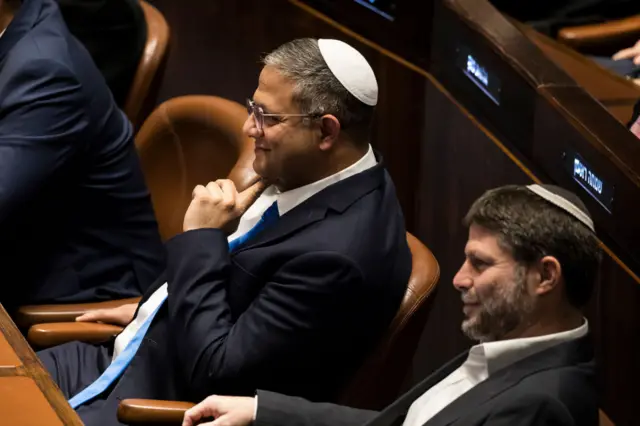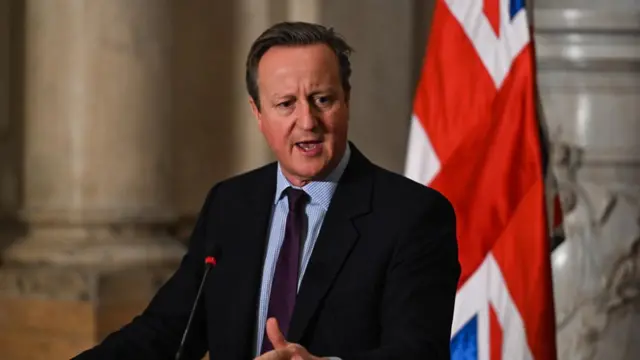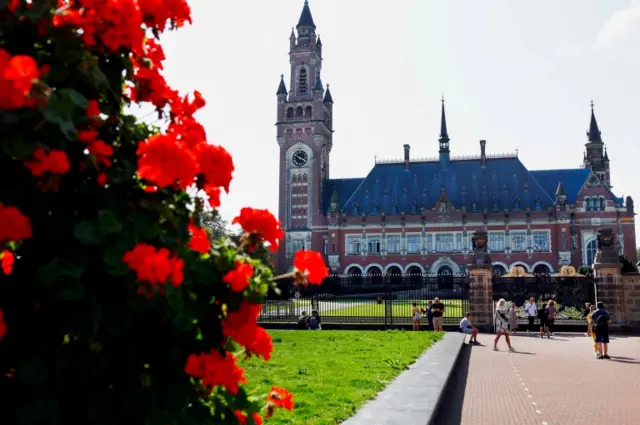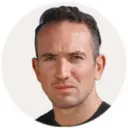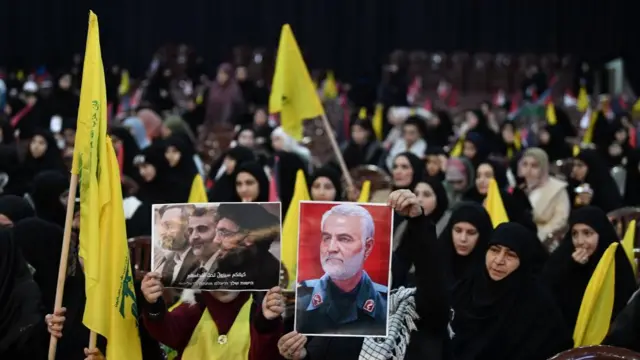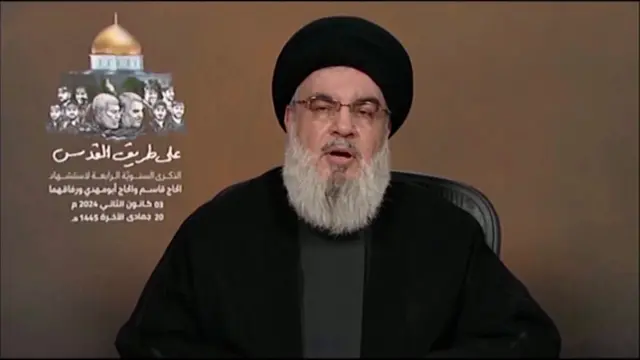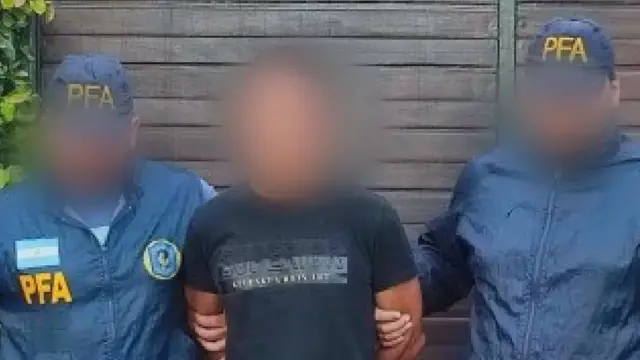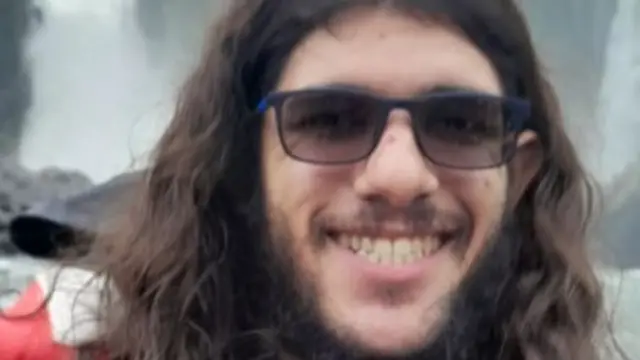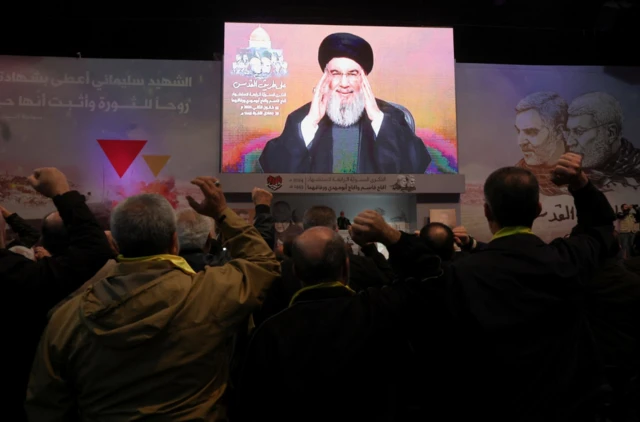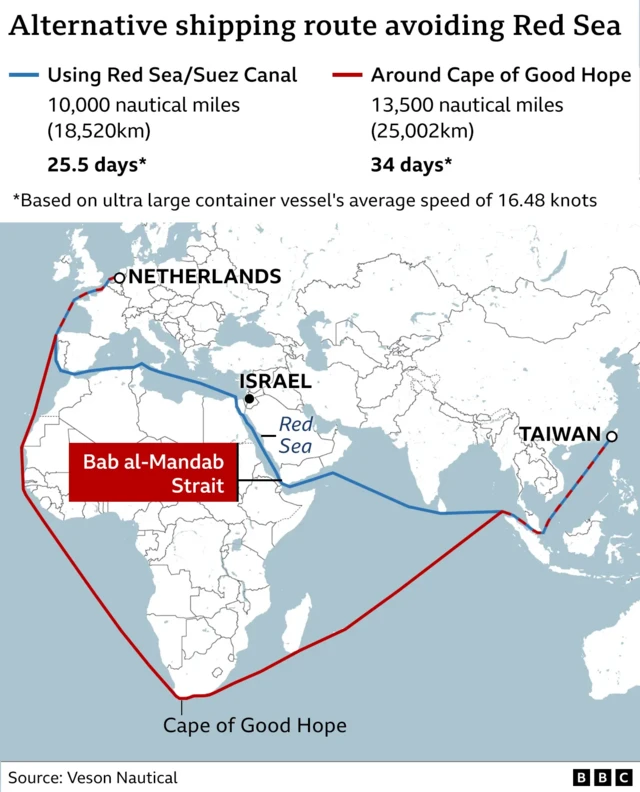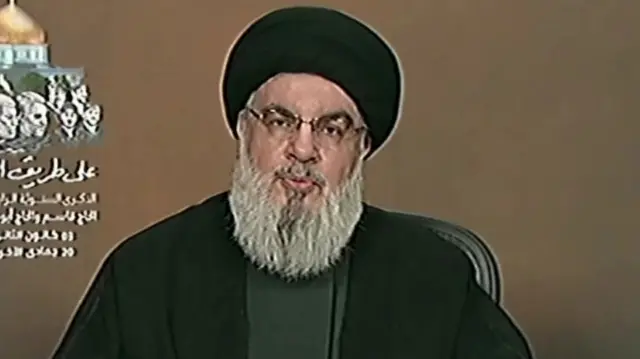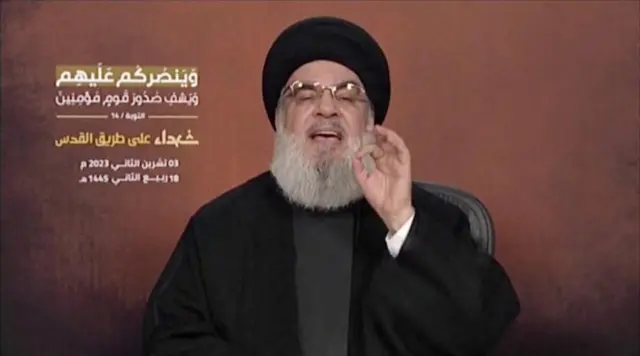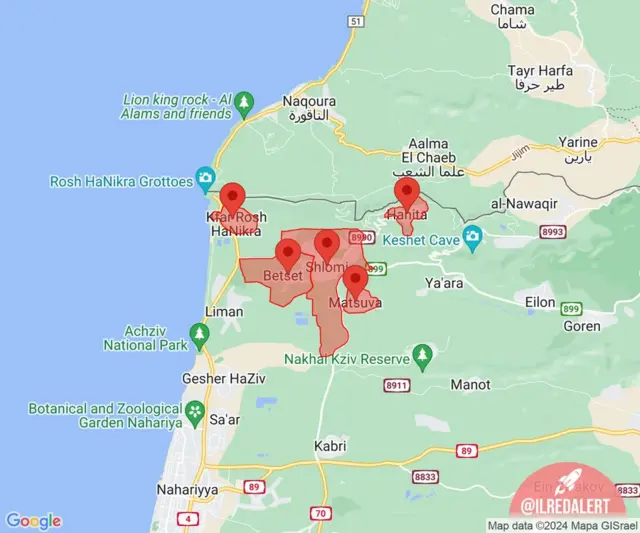A tense situation in Lebanon and Israelpublished at 20:52 GMT 3 January 2024
We'll be ending our live coverage of the fallout from the killing of senior Hamas leaders in Beirut last night shortly. Here's a quick round-up of the day's events:
Lebanon
The leader of the powerful Lebanese armed group Hezbollah, Hassan Nasrallah, has vowed to respond to the deaths of Hamas deputy chief Saleh al-Arouri and others. Israel has not officially claimed responsibility.
In a televised speech, he also warned Israel it would pay a "heavy price" if it attacked Lebanon, saying Hezbollah would fight "without rules".
Missile attacks and artillery fire have been exchanged along the Israel-Lebanon border for months, but so far there is no sign of the further escalation the UN peacekeeping force in Lebanon warned was a growing risk in the region.
Gaza
Away from Israel's northern border, in Gaza the fighting rages on. The Hamas-run health ministry says more than 22,313 people have been killed there.
Israel says its troops have killed "dozens of terrorists" in Jabalia, in northern Gaza, and targeted others in Gaza City.
Red Sea
Further south, Houthi attacks from Yemen on shipping continue. The US government says missiles were fired at a French container ship, although no damage was reported.
A group of 12 countries have condemned the attacks in the vital sea lane, which connects markets in Europe with Asia through the Suez Canal.
The Red Sea is also a key shipping lane for oil and gas from the Gulf. Analysts and businesses are warning prices will rise as ships re-route around the Horn of Africa.
